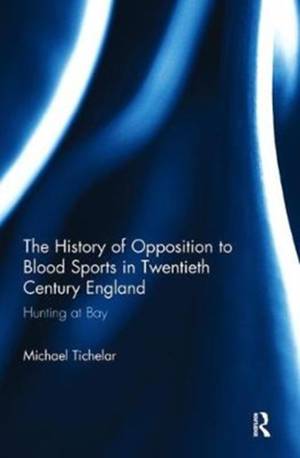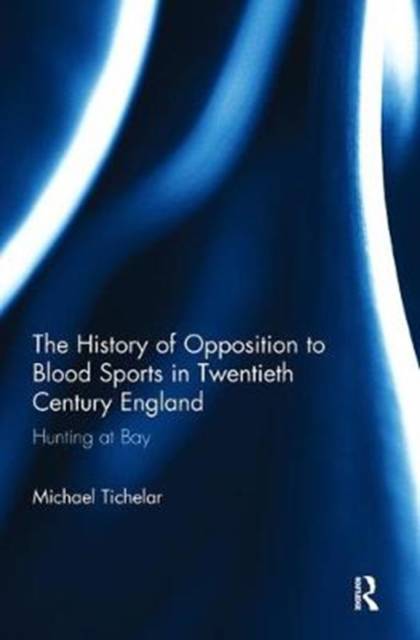
- Retrait gratuit dans votre magasin Club
- 7.000.000 titres dans notre catalogue
- Payer en toute sécurité
- Toujours un magasin près de chez vous
- Retrait gratuit dans votre magasin Club
- 7.000.0000 titres dans notre catalogue
- Payer en toute sécurité
- Toujours un magasin près de chez vous
The History of Opposition to Blood Sports in Twentieth Century England
Hunting at Bay
Michael TichelarDescription
An interdisciplinary social history, this book examines the major pressures and influences that brought about the remarkable growth of opposition to hunting in twentieth century England. With public opinion consistently deciding from the middle of the century onward that hunting mammals for sport was cruel and unacceptable, it would appear that the controversy over hunting has all but been decided, though hunting yet remains 'at bay'.
Based on a range of cultural, social, literary and political sources drawn from a variety of academic disciplines, including history, sociology, geography, psychology and anthropology, The History of Opposition to Blood Sports in Twentieth Century England accounts for the change in our relationship with animals that occurred in the course of the twentieth century, shedding light on the manner in which this resulted in the growth in opposition to hunting and other blood sports.
With evidence comprising a mixture of primary and secondary historical sources, together with documentary films, opinion polls, Mass Observation records, political party archives, and the findings of sociologists, political scientists, anthropologists and geographers, this book will appeal to scholars and students across the social sciences and historians with an interest in human-animal relations.
Spécifications
Parties prenantes
- Auteur(s) :
- Editeur:
Contenu
- Nombre de pages :
- 202
- Langue:
- Anglais
Caractéristiques
- EAN:
- 9781138600102
- Date de parution :
- 27-04-18
- Format:
- Livre broché
- Format numérique:
- Trade paperback (VS)
- Dimensions :
- 156 mm x 233 mm
- Poids :
- 399 g

Les avis
Nous publions uniquement les avis qui respectent les conditions requises. Consultez nos conditions pour les avis.






